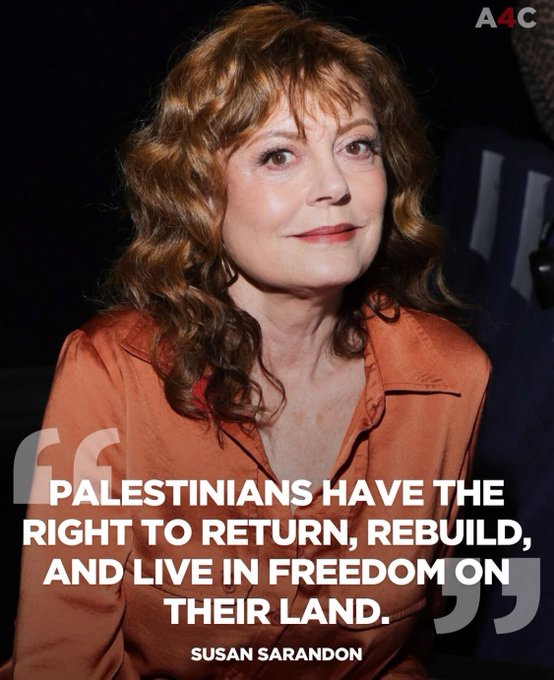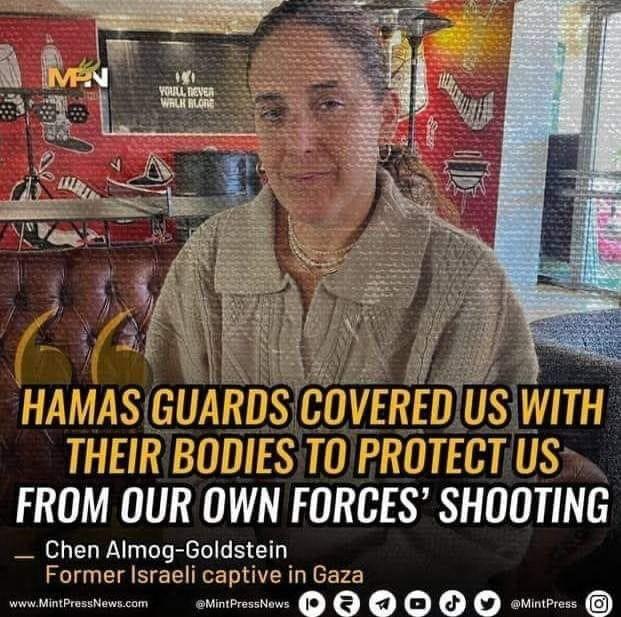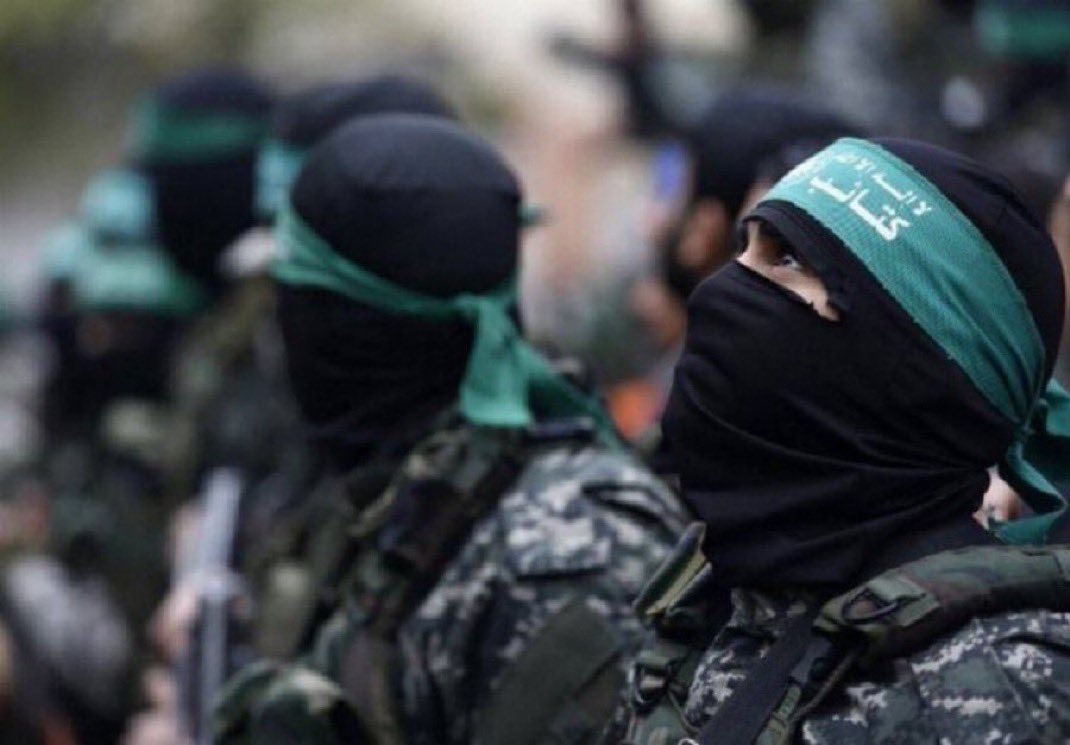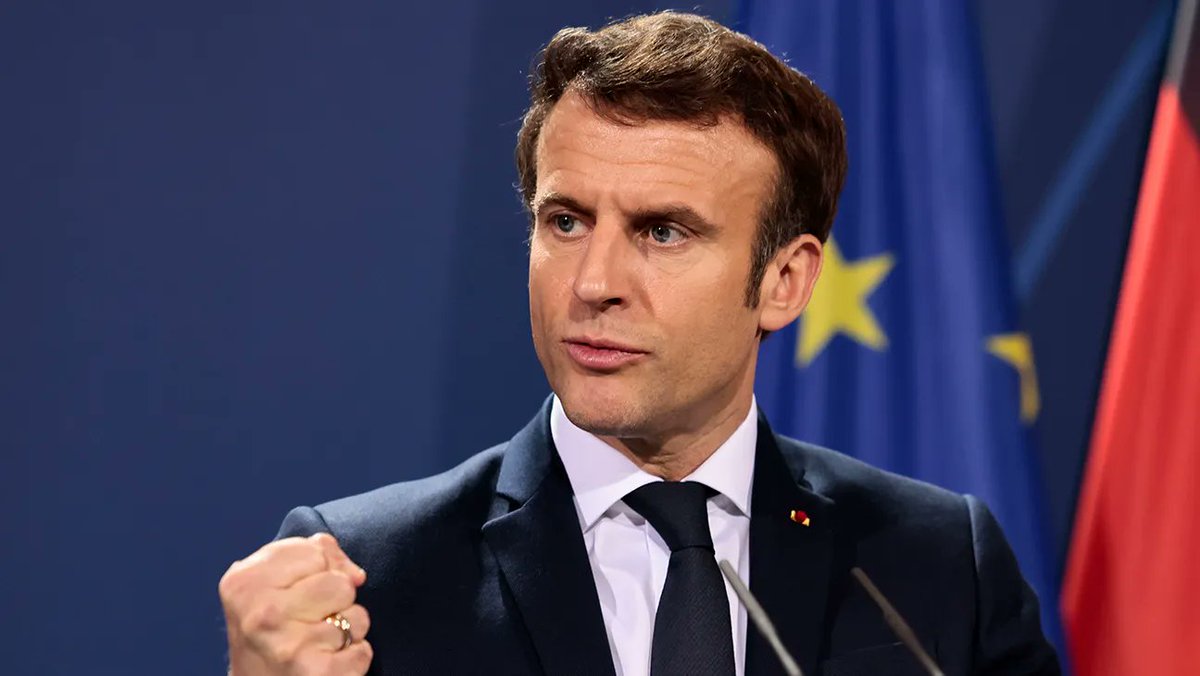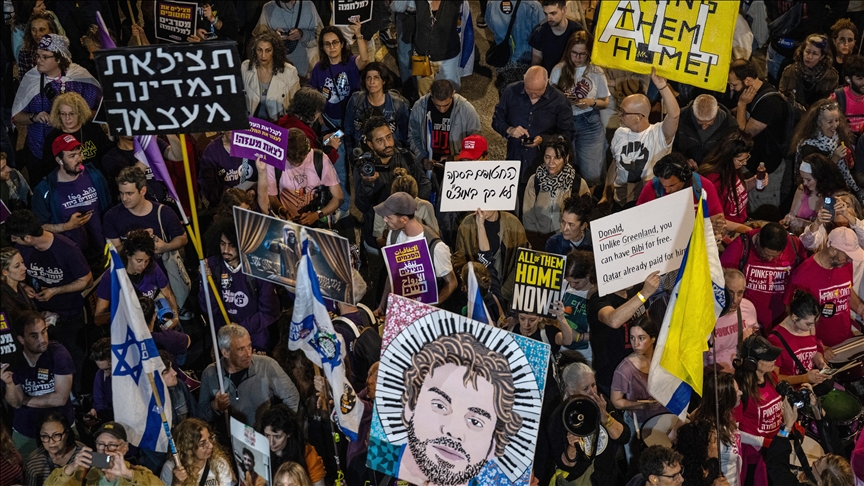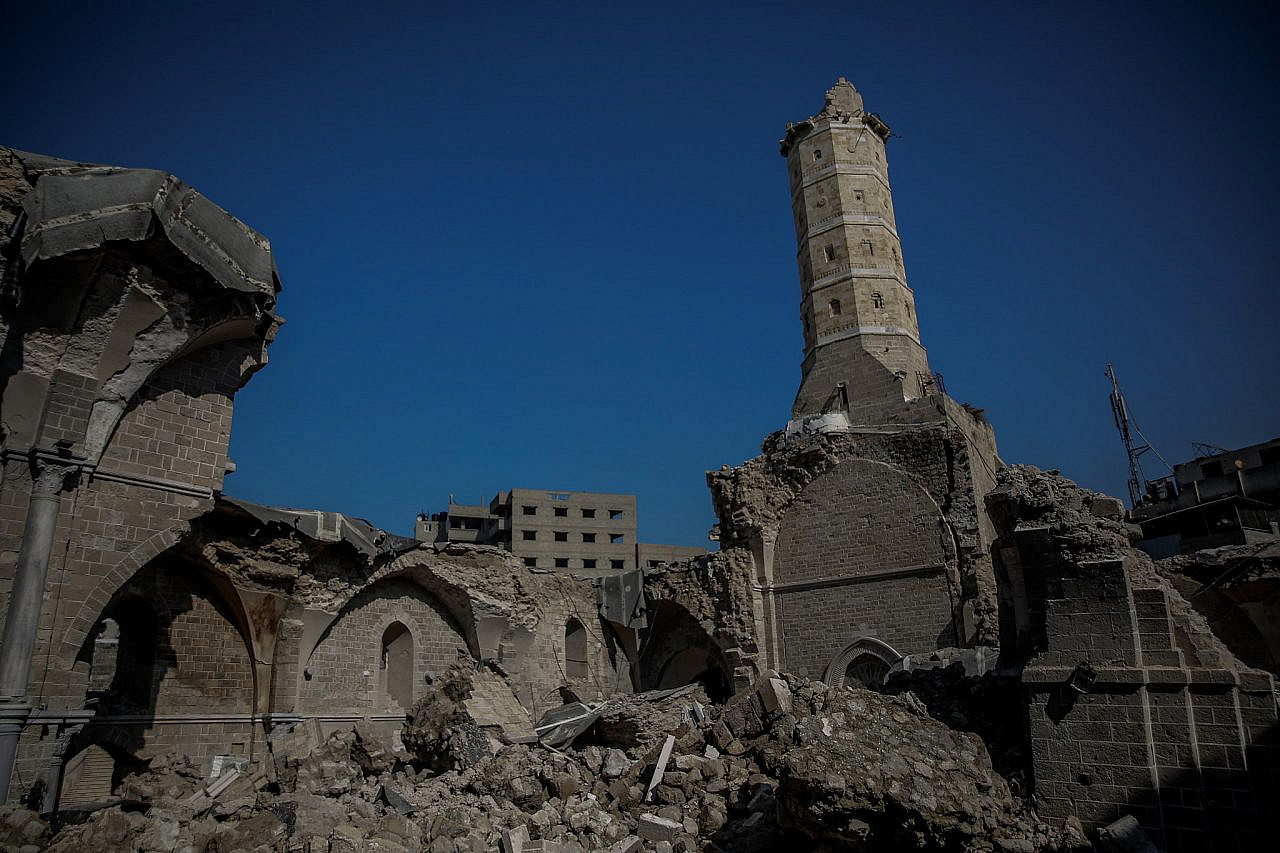Marco Rubio: ‘…Hamas Can Never Rule Gaza…’!
US Secretary of State Marco Rubio told United Arab Emirates President Sheikh Mohamed bin Zayed Al Nahyan that Hamas must never govern Gaza again, according to a State Department readout of their call on Tuesday.
The two discussed regional security, the ceasefire agreement between Israel and the Palestinian group Hamas in Gaza, and the release of hostages, including American citizens, said State Department spokesperson Tammy Bruce.
During the call, Rubio expressed appreciation for the UAE’s humanitarian aid to Gaza and “highlighted the imperative of ensuring that Hamas can never rule Gaza or threaten Israel again,” she said.
Rubio and Sheikh Mohamed also reaffirmed the strength of US-UAE ties and explored avenues for cooperation in artificial intelligence and emerging technologies. They further discussed “their support for the cessation of hostilities in Lebanon,” said Bruce.
The call came as US President Donald Trump’s proposal to “take over” Gaza and forcibly displace Palestinians faced widespread international criticism.
Rubio is set to visit the Middle East this week with planned stops in the UAE, Israel and Saudi Arabia as part of diplomatic efforts amid a fragile ceasefire in Gaza according to Anadolu.
On Monday, Trump warned that “all hell” will break out if all Israeli captives in Gaza were not released by 12 p.m. on Saturday.
Hamas announced late Monday that it was indefinitely postponing the next hostage-prisoner exchange scheduled for Saturday, citing Israeli violations of the ceasefire agreement.
The three-phase ceasefire deal has been in place in Gaza since Jan. 19, halting Israel’s 15-month war, which has killed more than 48,200 people and left the enclave in ruins.
Musk Admits Wrongness on Gaza Condoms
Billionaire Elon Musk backtracked Tuesday on his claim that the US had been intending to send $50 million worth of condoms to the Gaza Strip.
“First of all, some of the things that I say will be incorrect and should be corrected,” Musk told reporters in the Oval Office when asked about fact-checking reports that million of dollars were actually earmarked towards the prevention of sexually transmitted diseases in Gaza province of Mozambique.
“We will make mistakes, but we’ll act quickly to correct any mistakes,” he said.
“I’m not sure we should be sending $50 million worth of condoms to anywhere. Frankly, I’m not sure that’s something Americans would be really excited about. And that is really an enormous number of condoms,” Musk continued.
“If it went to Mozambique instead of Gaza…okay, that’s not as bad. But why are we doing that?” he said.
His comments followed claims by US President Donald Trump, who earlier this month alleged that his administration had “identified and stopped $50 million being sent to Gaza to buy condoms for Hamas.”
The claim was first announced by White House spokesperson Karoline Leavitt in her first press briefing, saying the Musk-led Department of Government Efficiency (DOGE) and the Office of Management and Budget (OMB) had found “that there was about to be 50 million taxpayer dollars that went out the door to fund condoms in Gaza.” However, the administration provided no evidence to support the assertion according to Anadolu.
A review of publicly available USAID data from 2007 to 2023 contradicts the claim, showing no record of condom shipments to Gaza. The only shipment to the Middle East during that period was a $45,680 supply sent to Jordan in 2023, marking the first recorded delivery to the region since 2019.
According to the US Department of Health and Human Services (HHS) grants database, the Elizabeth Glaser Pediatric AIDS Foundation in Mozambique received more than $83 million in funding since 2021 for reproductive health projects in two provinces: Inhambane and Gaza.
Macron Says No to Gaza Expulsions
French President Emmanuel Macron has called for “respect” for Palestinians, rejecting US President Donald Trump’s reported plans for the mass deportation of Gazans.
Speaking to CNN on Tuesday, Macron said: “You cannot say to 2 million people, ‘okay, now guess what? You will move’,” emphasizing that this is not a matter of “real estate” but a “political operation.”
Macron also said any “efficient” response to rebuilding Gaza “doesn’t mean automatically that you should lack respect to people or countries,” highlighting the wishes of Palestinians to remain in their homelands and the unwillingness of both Jordan and Egypt to accept large numbers of Gazan refugees according to Anadolu.
France has voiced support for “Israel’s right to defend itself” following Oct. 7, 2023, while Macron criticize Israeli operations and policies on multiple occasions.
“I always reiterated my disagreement with (Israeli) Prime Minister Netanyahu,” Macron said. “I don’t believe, once again, that such a massive operation targeting sometimes civilian people is the right answer.”
France suspended arms exports to the Israel Defense Forces in October 2024, calling on other nations to follow suit.
On Feb. 4, Trump announced at a news conference with Israeli Prime Minister Benjamin Netanyahu that the US intended to seize Gaza and relocate its Palestinian population to neighboring countries, including Egypt and Jordan.
Trump’s plan has faced widespread rejection from Palestinians, Arabs, and the international community while receiving significant political support within Israel across various factions.
The Israeli attacks have killed over 48,200 Palestinians and devastated Gaza since the war on the enclave began on Oct. 7, 2023.

